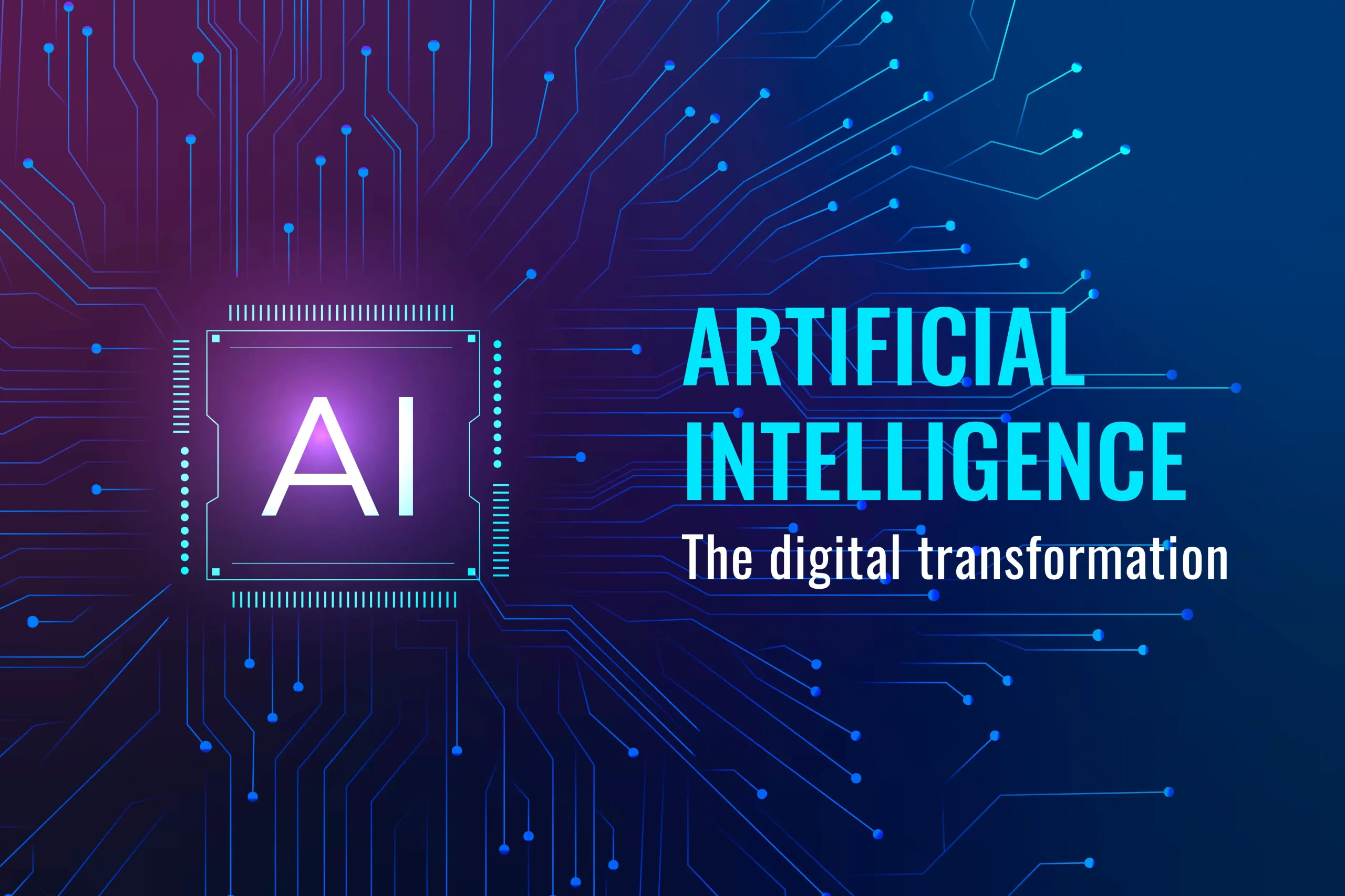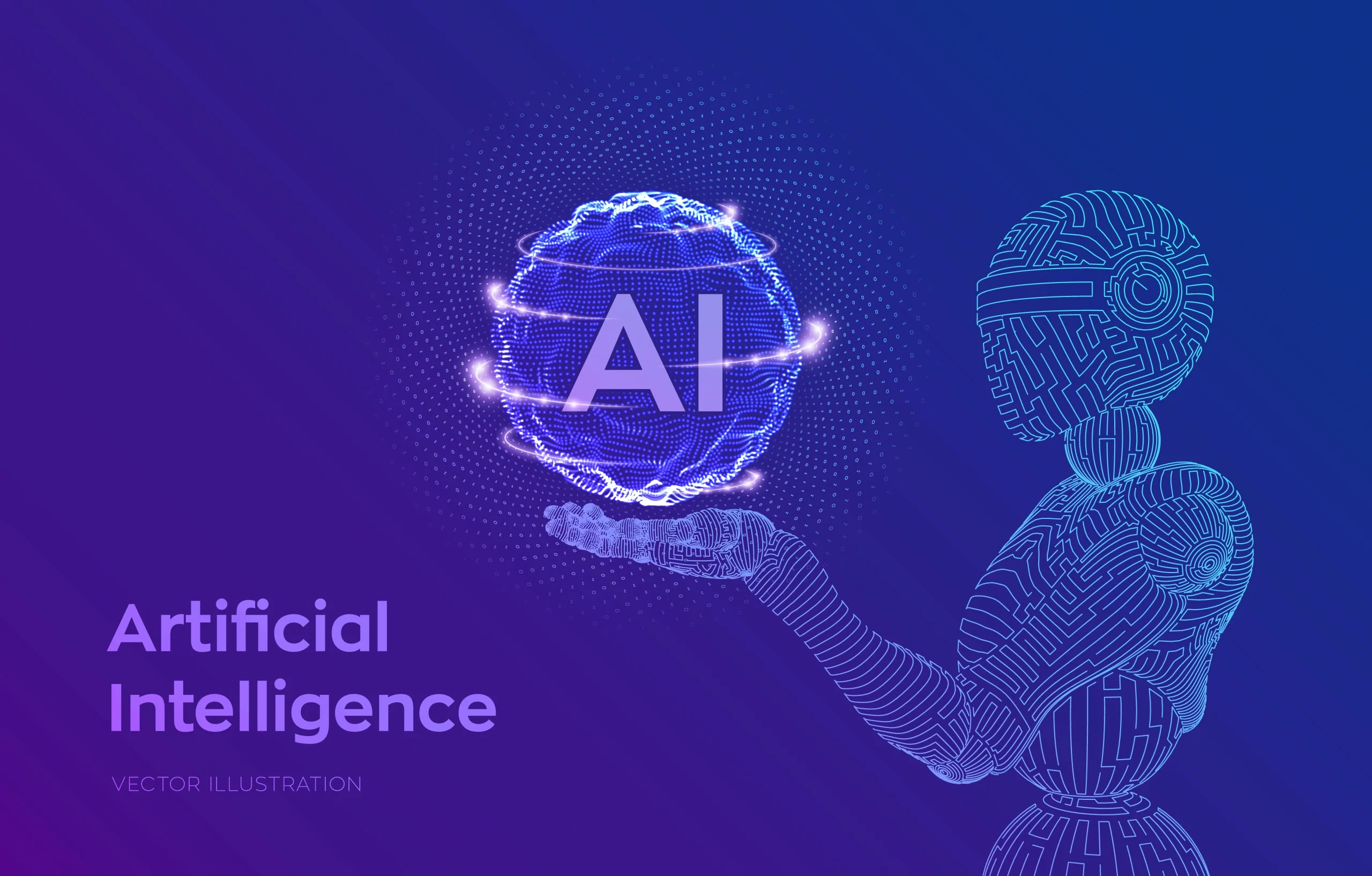
The digital landscape is evolving at lightning speed, and so are the strategies we use to navigate it. Enter AI—an innovative powerhouse that’s revolutionizing how we approach SEO. From keyword research to content generation, artificial intelligence is transforming the way businesses attract and engage their audiences online.
Imagine a world where keywords practically find themselves, where content writes itself based on user intent, and technical audits happen in real-time without lifting a finger. This isn’t science fiction; it’s happening right now! With tools powered by machine learning and advanced algorithms, marketers can dive deep into data analytics like never before.
In this article, we’ll explore the multifaceted role of AI in enhancing SEO components—from discovering high-performing keywords through sophisticated predictive analytics to optimizing your site’s performance with automated insights. Whether you’re a seasoned pro or just starting out in digital marketing, understanding these advanced techniques will give you an edge over your competitors. Let’s embark on this journey into the future of search engine optimization!

AI-Powered Keyword Research and Optimization
AI-powered keyword research is reshaping how marketers approach search engine optimization. Traditional methods often relied on guesswork, but AI tools like SEMrush and Ahrefs sift through vast datasets to pinpoint high-performing keywords with impressive accuracy.
These platforms leverage predictive analytics, offering insights into search volumes that anticipate future trends. This means you can stay ahead of the curve by targeting emerging keywords before they become mainstream.
Additionally, semantic keyword grouping allows content creators to cluster related terms based on user intent. Instead of focusing solely on individual keywords, this strategy enhances your content’s relevance across multiple search queries.
Natural Language Processing (NLP) further amplifies these efforts by analyzing the nuances of human language. By understanding synonyms and conversational phrases, AI helps optimize for voice searches—a crucial aspect as more users turn to digital assistants for information retrieval.
Harnessing these advanced capabilities shifts SEO from a reactive process to a proactive one.
AI-Driven Keyword Discovery: Tools like SEMrush, Ahrefs, and Google’s RankBrain use AI to identify high-performing, relevant keywords with predictive search volume.
AI-driven keyword discovery has revolutionized the way marketers approach search engine optimization. Tools like SEMrush and Ahrefs leverage machine learning algorithms to sift through vast data sets, pinpointing high-performing keywords that resonate with users.
These platforms analyze real-time search trends, allowing businesses to identify which keywords will likely drive traffic in the future. With predictive search volume insights, marketers can make informed decisions about where to allocate resources.
Google’s RankBrain also plays a significant role by interpreting user intent behind queries. This understanding helps refine keyword strategies further, ensuring content aligns perfectly with what users are searching for.
By utilizing these AI tools effectively, brands can sharpen their focus on relevant terms while staying ahead of ever-evolving market dynamics. The result is not just increased visibility but a more targeted approach that resonates deeply with potential customers.
Semantic Keyword Grouping: AI clusters related keywords based on search intent, improving content optimization for multiple related terms.
Semantic keyword grouping is revolutionizing the way we approach content creation. By leveraging AI, this technique organizes keywords based on their underlying search intent rather than just surface-level similarities.
When a user types in a query, they often have specific needs or questions in mind. AI analyzes these patterns to cluster related terms effectively. This means that instead of focusing solely on singular keywords, content can address broader topics and variations that resonate with what users are truly searching for.
This strategy not only enhances relevance but also improves SEO performance by optimizing for multiple related terms at once. As a result, websites become more discoverable and engaging for audiences seeking comprehensive information. Embracing semantic keyword grouping allows businesses to connect better with users while boosting their online visibility significantly.
Natural Language Processing (NLP): AI enhances content understanding by analyzing user language, helping identify synonyms and related concepts to optimize for voice search and conversational queries.
Natural Language Processing (NLP) has revolutionized how we approach content creation and optimization. By understanding the intricacies of human language, AI can analyze user queries more effectively.
This capability allows businesses to identify synonyms and related concepts. As a result, content becomes richer and more engaging for users seeking information.
Voice search is becoming increasingly popular. People speak differently than they type—NLP helps bridge this gap by optimizing content for conversational queries. This ensures that websites appear in relevant searches, enhancing visibility.
Moreover, NLP tools streamline keyword research by clustering terms based on context rather than just frequency. Marketers can create targeted strategies that resonate with their audience’s intent.
Harnessing NLP isn’t just about keeping up; it’s about staying ahead in an ever-evolving digital landscape where effective communication is key to engagement and success.
Predictive Analytics for Keyword Trends: AI predicts future keyword trends by analyzing large datasets and search patterns over time.
Predictive analytics is transforming how we approach keyword strategies. By harnessing the power of AI, marketers can forecast future trends with impressive accuracy.
AI analyzes vast datasets and historical search patterns. It identifies emerging keywords that users are starting to search for more frequently. This proactive approach allows businesses to stay ahead of their competition.
Imagine knowing which keywords will surge in popularity three months from now. With predictive insights, content creation becomes focused and strategic rather than reactive.
This advanced analysis helps optimize campaigns before trends peak. Brands can align their content with anticipated user intent, effectively capturing traffic when it matters most.
As a result, marketers become more agile in decision-making and resource allocation. Embracing these tools means not just reacting but anticipating the needs of your audience.

Content Generation and Optimization
AI-driven content generation tools are revolutionizing how we create web content. With platforms like Jasper and Copy.ai, marketers can produce SEO-friendly articles, product descriptions, and meta tags in a fraction of the time it used to take.
These AI tools analyze keyword inputs and generate engaging text tailored for target audiences. This means businesses spend less time brainstorming topics and more time refining their strategies.
Content personalization is another game-changer. AI examines user behavior to deliver customized recommendations that resonate with individual preferences. By doing this, websites can foster deeper connections with visitors.
Moreover, identifying content gaps has never been easier. Advanced algorithms scan competitor sites to pinpoint areas where your brand could expand its reach or fill voids in existing topics.
All these capabilities empower brands to not only keep pace but also lead in the digital landscape by delivering relevant, high-quality content consistently.
AI-Generated Content: AI tools (e.g., Jasper, Copy.ai) assist in generating SEO-friendly content, like blog posts, product descriptions, and meta descriptions based on keyword inputs.
AI-generated content has transformed the landscape of digital marketing. Tools like Jasper and Copy.ai leverage advanced algorithms to create SEO-friendly text tailored to specific keyword inputs.
Imagine crafting engaging blog posts or compelling product descriptions in a fraction of the time it used to take. These AI tools analyze trends and user intent, ensuring that your content resonates with target audiences while adhering to SEO best practices.
With just a few clicks, you can generate meta descriptions that grab attention and improve click-through rates. The ability to produce high-quality content at scale opens doors for businesses looking to expand their online presence without sacrificing quality.
Embracing AI in your content strategy means staying ahead of competitors who may still rely on traditional methods. It’s about efficiency, effectiveness, and ultimately driving more traffic through well-optimized content that speaks directly to what users are searching for.
Content Personalization: AI analyzes user behavior and preferences to create personalized content recommendations for website visitors, enhancing user engagement.
Content personalization is revolutionizing how websites engage with visitors. By leveraging AI’s analytical capabilities, businesses can track user behavior and preferences in real-time.
Imagine browsing a site that curates articles or products specifically tailored to your interests. This level of customization not only captivates users but also encourages them to explore further.
AI algorithms mine vast amounts of data, identifying patterns in what users click on, read, or purchase. This insight allows for dynamic content recommendations that feel intuitive and relevant.
When users find exactly what they’re looking for—whether it’s a blog post or product—they spend more time interacting with the site. This boosts engagement metrics while fostering loyalty among visitors who appreciate a personalized experience.
The future of web interaction lies in understanding individual needs at scale, making every visit unique and engaging.
Content Gap Analysis: AI identifies content gaps by analyzing competitor sites and suggesting new topics or areas for expansion.
Content Gap Analysis harnesses the power of AI to unveil hidden opportunities within your niche. By meticulously analyzing competitor sites, AI identifies areas where your content may be lacking.
This advanced technology dives deep into existing articles, pinpointing topics that resonate with audiences but remain untouched by your brand. Imagine discovering trending themes or questions that competitors have addressed while you haven’t even scratched the surface.
With insightful suggestions for new topics and expansion areas, AI acts as a strategic partner in enhancing your content strategy. It empowers you to create relevant and engaging material tailored to meet audience needs.
In an ever-evolving digital landscape, staying ahead means recognizing these gaps promptly. Embracing Content Gap Analysis not only boosts SEO performance but also solidifies your position as a thought leader in your industry. The right insights can transform how you engage with readers and shape future content endeavors.
Optimization for Featured Snippets: AI helps identify which pieces of content can be optimized to appear in featured snippets by suggesting formatting and keyword use.
Featured snippets are coveted spots on search engine results pages. They provide instant answers to users while elevating visibility for your content.
AI plays a crucial role in identifying which pieces of your content have the potential to snag these prime positions. By analyzing existing snippets and user queries, AI suggests specific formatting techniques that make your text more snippet-friendly.
For example, AI can recommend using bullet points or tables to convey complex information clearly and concisely. Additionally, it highlights relevant keywords that resonate with common search phrases related to your topic.
This targeted approach not only increases the chances of being featured but also enhances the overall quality of your content. With AI’s guidance, you can craft responses tailored for quick comprehension — a win-win for both users and SEO strategy!

Advanced On-Page Optimization with AI
On-page optimization has entered a new era with the integration of AI. Automated content auditing tools now meticulously review websites, analyzing keyword density, readability, and internal linking structures.
These advanced systems can provide actionable insights that enhance SEO performance in real-time. They highlight areas for improvement that might go unnoticed by manual checks.
AI-powered A/B testing takes the guesswork out of optimizing headlines and meta descriptions. By automating these tests, marketers can quickly determine which elements resonate most with their audience.
Sentiment analysis further refines this process by gauging user reactions to different content tones. Understanding how language influences engagement allows for more tailored approaches to messaging.
The synergy between human creativity and AI precision creates a robust framework for on-page success. This blend empowers businesses to stay ahead in an ever-evolving digital landscape without sacrificing quality or relevance.
Automated Content Auditing: AI audits website content for SEO improvements, checking for keyword density, readability, internal linking, and meta tag optimization.
Automated content auditing transforms the way websites enhance their SEO. With AI at the helm, it meticulously analyzes existing content for various optimization factors.
Keyword density is one of its primary focuses. By assessing how often target keywords appear, it ensures they are effectively integrated without compromising readability. This balance is crucial as search engines favor user-friendly content.
Readability also plays a vital role in audience engagement. Automated audits check sentence structure and vocabulary to make sure your material resonates well with readers while remaining accessible.
Internal linking strategies come under scrutiny too. A smart AI can identify opportunities to connect related pieces of content, boosting site navigation and keeping visitors engaged longer.
Meta tags receive special attention during these audits. Optimizing titles and descriptions helps improve visibility on search engine results pages, drawing more traffic to your site effortlessly.
AI-Powered A/B Testing: AI automates A/B tests for headlines, meta descriptions, and page layouts, optimizing elements for maximum engagement and SEO performance.
A/B testing has always been a critical part of optimizing web content. Now, with AI at the helm, this process is faster and more efficient than ever before.
AI automates A/B tests for various elements like headlines, meta descriptions, and entire page layouts. This means marketers can test multiple variations simultaneously without drowning in data analysis.
The beauty lies in its ability to analyze user engagement metrics almost instantly. It learns which combinations resonate best with visitors and adapts accordingly.
This automation allows teams to focus on creative strategy while AI handles the nitty-gritty details. The result is not just improved engagement but also enhanced SEO performance as high-performing elements are prioritized.
With every iteration, your website becomes smarter—tailored precisely to meet user preferences and search engine algorithms alike.
Sentiment Analysis: AI analyzes user sentiment around content and adjusts tone and language to better resonate with the audience.
Sentiment analysis is transforming how brands connect with their audiences. By leveraging AI, businesses can gauge user emotions tied to content engagement. This technology dives deep into comments, reviews, and social media interactions, unraveling the feelings behind words.
Understanding sentiment allows organizations to tailor their tone and language effectively. If a piece of content garners positive reactions, amplifying that voice can enhance audience connection. Conversely, recognizing negative sentiments enables timely adjustments to improve user experience.
AI’s capability to analyze vast amounts of data ensures insights are both accurate and actionable. Marketers can craft messages that resonate on a personal level while fostering trust and loyalty among consumers.
As insights evolve in real time, brands remain agile—quickly adapting strategies for maximum impact within ever-changing market dynamics.

Predictive SEO and Rank Forecasting
Predictive SEO and rank forecasting harness the power of data to anticipate future trends. By analyzing historical performance, AI algorithms can identify patterns that indicate how various factors influence rankings.
These models consider numerous variables such as keyword optimization, backlinks, and user engagement metrics. This enables SEO professionals to prioritize tasks effectively.
For instance, if a specific content strategy consistently leads to improved rankings in similar niches, predictive insights can guide teams toward replicating this success across their sites.
Moreover, staying ahead of search engine algorithm changes becomes more manageable with these tools. Professionals can adapt strategies proactively rather than reactively. The result is a more agile approach to SEO that aligns closely with evolving market demands.
Utilizing predictive analytics not only streamlines workflows but also enhances the decision-making process for long-term growth and visibility online.
AI Rank Prediction: AI models predict changes in rankings based on various SEO activities, helping SEO teams prioritize tasks.
AI rank prediction is revolutionizing how SEO teams approach their strategies. By leveraging advanced algorithms, AI models can analyze countless ranking factors and predict how changes will influence website performance.
These predictions allow teams to prioritize tasks effectively. Instead of guessing which activities might yield the best results, SEO professionals can focus on high-impact strategies that are more likely to boost rankings.
Imagine having insights into which keywords or optimizations could lead to immediate improvements in visibility. This empowers teams to make data-driven decisions rather than relying on intuition alone.
As AI continues evolving, its ability to forecast changes in search rankings becomes increasingly accurate. It transforms chaotic optimization efforts into streamlined processes with measurable outcomes. The future of SEO looks promising as these predictive capabilities become standard practice for digital marketers seeking an edge in competitive landscapes.
Search Engine Algorithm Analysis: AI constantly analyzes search engine algorithm updates and their impact on rankings, allowing SEO professionals to adapt quickly.
Search engine algorithms are ever-evolving, often shifting the landscape of SEO overnight. AI steps in as a powerful ally for professionals navigating these changes.
With its ability to process vast amounts of data, AI continuously monitors algorithm updates. It identifies patterns that influence search rankings more effectively than any human could. This allows SEO specialists to pinpoint which tactics need adjustment almost instantly.
The real-time analysis provided by AI enhances decision-making. Professionals can act on insights immediately, optimizing their strategies based on the latest developments.
Moreover, understanding how specific changes affect ranking metrics becomes straightforward. With this knowledge at hand, businesses can stay ahead of competitors and maintain visibility in an increasingly dynamic digital environment.
AI’s role transforms what once was reactive into a proactive approach to SEO strategy development.
Predictive Insights for SEO Strategies: AI forecasts how different optimization strategies will affect site traffic and rankings, guiding decision-making.
Predictive insights in SEO leverage AI’s ability to analyze vast data sets. By examining historical trends, algorithms can forecast how various optimization techniques might influence site traffic and rankings.
Imagine being able to see potential outcomes before implementing changes. This foresight empowers marketers to make informed decisions about their strategies.
AI models can simulate different scenarios based on keyword adjustments, content updates, or backlink efforts. It highlights which actions could yield the highest return on investment.
By understanding these predictions, businesses can prioritize initiatives that align with their goals and audience needs. The result? Enhanced efficiency and effectiveness in driving organic growth while adapting swiftly to search engine algorithm shifts.

AI in Technical SEO
AI is revolutionizing technical SEO by automating tasks that once consumed valuable time. Tools like DeepCrawl and Screaming Frog now leverage machine learning to perform site audits effortlessly. They identify issues related to site speed, mobile usability, and crawlability with precision.
Structured data implementation has also become seamless thanks to AI advancements. Markup creation for rich snippets or FAQs is now easier than ever, enhancing visibility in search results.
Image optimization gains efficiency through AI too. Automated generation of alt text improves accessibility while boosting media-based SEO strategies.
Moreover, log file analysis allows businesses to uncover crucial insights regarding server performance. By examining crawl behavior and page load times, organizations can pinpoint technical hurdles affecting their rankings more accurately than human oversight alone could achieve.
Automated Site Audits: AI tools like DeepCrawl or Screaming Frog use machine learning to automatically crawl and identify issues related to site speed, mobile usability, and crawlability.
Automated site audits are revolutionizing how websites are optimized. With tools like DeepCrawl and Screaming Frog, the process becomes seamless and efficient.
These AI-driven platforms utilize machine learning to crawl your website comprehensively. They delve deep into every corner, identifying issues that could hinder performance.
From site speed to mobile usability, these tools provide a thorough analysis. You can discover if your pages load slowly on mobile devices or if any elements disrupt user experience.
The focus on crawlability is also crucial. Ensuring search engines can navigate your site effectively enhances visibility in search results.
By automating this process, webmasters save time while gaining invaluable insights into their site’s health. This means quicker adjustments and better overall performance without the manual headaches involved in traditional auditing methods.
Structured Data Implementation: AI simplifies the implementation of structured data (e.g., schema markup), helping to optimize rich snippets, FAQs, and product listings.
Structured data implementation can often feel daunting for many website owners. However, AI is changing the game by streamlining this process significantly.
With AI-powered tools, adding schema markup becomes a breeze. These tools analyze your content and automatically suggest the most relevant types of structured data to implement. This means you can focus on creating great content while letting the technology handle the technicalities.
Optimizing rich snippets is another area where AI shines. By properly implementing structured data, your listings become more attractive in search results, leading to higher click-through rates.
Furthermore, FAQs and product listings benefit immensely from this optimization strategy. They not only enhance user experience but also provide clearer information to search engines about your offerings. Using AI for structured data ensures that your site stands out amidst fierce competition online.
Image and Video SEO: AI automates image alt text generation and video transcription to improve media-based SEO.
Images and videos play a crucial role in online content. However, optimizing these media elements can be time-consuming. This is where AI steps in to simplify the process.
AI technology automates the generation of image alt text, ensuring accessibility and improving search engine visibility. By analyzing images, algorithms create descriptive text that accurately reflects visual content. This not only enhances user experience but also boosts SEO performance.
For video content, transcription becomes vital for optimization. AI tools automatically transcribe spoken words into readable text. This makes videos searchable while catering to users who prefer reading over watching.
Both processes save time and effort for marketers while significantly enhancing their media-based SEO strategy. With AI handling these tasks, businesses can focus on creating engaging multimedia without compromising on optimization efforts.
AI-Powered Log File Analysis: AI analyzes server logs to identify crawl issues, page load problems, and other technical hurdles affecting SEO performance.
AI-Powered Log File Analysis transforms how SEO professionals approach site optimization. By diving into server logs, AI uncovers critical insights that can often remain hidden.
This technology meticulously examines patterns related to crawl behavior. It identifies where bots struggle or fail to access content. Such information is vital for improving overall site visibility.
Beyond just crawling issues, it also pinpoints page load times and other technical hurdles. Slow-loading pages can deter users and impact rankings negatively. With AI analyzing these metrics, you can make informed decisions to enhance user experience.
Moreover, automated log analysis saves time and resources compared to manual reviews. This allows teams to focus on strategic initiatives rather than getting bogged down in the minutiae of data sifting. Adopting this advanced technique could be a game-changer for your SEO efforts.

Voice Search and Conversational AI Optimization
Voice search is transforming the way users interact with information. As people increasingly rely on voice-activated devices, optimizing for this trend becomes crucial.
Conversational AI plays a key role in understanding user intent and delivering relevant results. By mimicking human conversation patterns, it ensures that content aligns seamlessly with natural language queries.
To effectively optimize for voice search, focus on long-tail keywords that reflect how people speak rather than type. This shift requires an adjustment in keyword strategy to capture those nuanced phrases.
Additionally, structured data can help enhance visibility in voice search results. Implementing schema markup allows search engines to better understand your content context and relevance.
Embracing these techniques not only improves SEO performance but also enhances user experience by providing quick and accurate answers—just like having a knowledgeable assistant at your fingertips.
Voice Search Optimization: AI helps optimize content for voice search by understanding conversational patterns and natural language queries
Voice search is changing how users interact with information online. It emphasizes the need for content that speaks their language—literally.
AI plays a crucial role in this shift by analyzing conversational patterns. This technology deciphers how people naturally ask questions and seek answers, making it easier to tailor content accordingly.
Instead of optimizing for keyword phrases alone, brands must now consider context and intent. Users often phrase queries differently when speaking compared to typing.
By understanding these nuances, AI can help create more relevant content that matches voice search behavior. Content optimized for voice searches tends to be concise, direct, and informative—perfectly suited for smart speakers and mobile devices alike.
As a result, businesses can improve visibility in an increasingly competitive digital landscape while enhancing user experience through engaging dialogue-driven interactions.
Natural Language Processing (NLP): AI processes complex language structures to ensure content aligns with voice search results, leveraging tools like Google BERT.
Natural Language Processing (NLP) revolutionizes how we interact with search engines. By understanding complex language structures, NLP ensures that content resonates with user intent.
Tools like Google BERT have made strides in interpreting conversational queries. This means search engines can now grasp nuances and context better than ever before. When users ask questions naturally, they receive relevant answers swiftly.
Optimizing for voice search isn’t just about keywords anymore; it’s about crafting content that feels human. With NLP, websites can align their messaging to match the way people actually speak.
This alignment increases visibility and engagement, making it essential for modern SEO strategies. Embracing NLP allows businesses to connect authentically with their audience while staying ahead of the digital curve.
Featured Snippet Optimization: AI identifies opportunities to structure content for voice search-friendly featured snippets.
Featured snippets have become a coveted real estate on search engine results pages. They provide quick answers to user queries, giving websites a significant visibility boost.
AI plays a crucial role in optimizing content for these snippets. By analyzing search patterns and queries, it identifies opportunities where your content can fit as the ideal answer.
The technology helps structure information clearly and concisely, making it easier for algorithms to select your text. This is vital for voice searches that often rely on straightforward questions and answers.
Formatting becomes essential; using bullet points or numbered lists can enhance clarity. AI tools also suggest relevant keywords that align with voice search trends, increasing the likelihood of being featured prominently.
Embracing this method not only enhances your chances of obtaining a snippet but also aligns your content strategy with modern search behaviors.

AI-Powered Local SEO
AI-Powered Local SEO is transforming how businesses connect with their communities. By leveraging advanced algorithms, these tools analyze local search behaviors and trends, ensuring that companies appear at the right moment for potential customers.
Automated local SEO audits identify factors like citations and NAP consistency, key elements for improving visibility in local searches. This ensures businesses not only reach their audience but also maintain credibility.
Personalized recommendations are another exciting aspect of AI. Tools adapt content based on user behavior and location, making interactions more relevant to each searcher’s needs.
Moreover, managing online reviews has never been easier. AI streamlines monitoring processes while automatically responding to customer feedback—creating a seamless communication channel that enhances trust and encourages engagement.
With geolocation data analysis, brands can optimize strategies tailored to hyperlocal audiences. This precision helps them stand out in crowded markets where every advantage counts.
Automated Local SEO Audits: AI tools analyze local SEO factors such as citations, NAP consistency, and local keyword usage to improve local rankings.
Automated local SEO audits are revolutionizing the way businesses improve their online visibility. AI tools can swiftly analyze crucial factors such as citations, NAP (Name, Address, Phone Number) consistency, and local keyword usage.
With precise algorithms, these tools scour the web for inconsistencies in your business information. Even minor discrepancies can hinder local rankings. By ensuring uniformity across platforms, you boost credibility with search engines.
Local keyword analysis is another game-changer. AI identifies which keywords resonate most within your specific geographical area. This insight allows you to tailor content that speaks directly to potential customers nearby.
The efficiency of automation means continuous monitoring without significant manual input. As a result, businesses stay ahead of competitors while optimizing their presence in an ever-evolving digital landscape. The future of localized marketing lies in smart technology-driven strategies that adapt seamlessly to user behavior and preferences.
Personalized Local Recommendations: AI adapts search results based on individual user behavior and location, tailoring content to hyperlocal audiences.
Personalized local recommendations are revolutionizing the way users discover content. By leveraging AI, search engines analyze individual user behavior and location data to serve relevant results.
Imagine a coffee shop in your neighborhood that pops up on your screen just as you’re craving a caffeine fix. This targeted approach not only enhances customer experience but also boosts foot traffic for local businesses.
AI’s ability to adapt search outcomes means that two people searching for the same term may receive entirely different suggestions based on their unique preferences and geographic context.
This hyperlocal focus fosters community engagement and drives meaningful connections between users and nearby businesses. The result? A more satisfying browsing experience that feels tailored just for you, making it easier than ever to support local establishments while enjoying personalized service at every turn.
AI for Managing Reviews: AI monitors and analyzes online reviews, automatically responding to queries or flagging important issues for action.
Managing online reviews can be a daunting task for businesses. Enter AI, which revolutionizes how companies handle feedback in real-time.
AI tools continuously monitor incoming reviews across various platforms. This ensures that no comment goes unnoticed. By employing advanced algorithms, these systems analyze sentiment and categorize feedback efficiently.
When queries arise, AI can automatically generate responses based on contextual understanding. This not only saves time but also maintains engagement with customers who seek immediate answers.
Moreover, significant issues flagged by the system prompt swift action from teams. Whether it’s addressing complaints or celebrating positive remarks, AI enhances responsiveness and fosters stronger relationships with customers.
As brands increasingly rely on user-generated content to shape their reputation, leveraging AI becomes essential for staying ahead of the curve in customer service excellence.
Geolocation Data Analysis: AI uses geolocation data to help optimize location-based SEO strategies, enhancing visibility for nearby searchers.
Geolocation data analysis has transformed how businesses approach local SEO. By leveraging AI technologies, companies can pinpoint their audience’s location in real-time.
This capability allows for precise optimization of content tailored to specific areas. Imagine a coffee shop that targets users searching for “best coffee near me.” AI analyzes search patterns and user behavior, ensuring the right messages reach potential customers just around the corner.
Moreover, geolocation insights inform strategies on local keywords and regional trends. Businesses can position themselves effectively by understanding what nearby consumers are searching for.
AI’s ability to adapt quickly also means that as locations or interests shift, so too do marketing tactics. This dynamic responsiveness enhances visibility in an increasingly competitive landscape while fostering genuine connections with local audiences.
AI-Driven User Experience (UX) Optimization
AI-Driven User Experience (UX) Optimization transforms how users interact with websites. By leveraging AI tools, businesses can analyze user behavior patterns to enhance engagement.
Understanding what captivates visitors is essential. AI tracks clicks and time spent on pages, revealing which elements resonate most. This data forms the backbone of effective UX strategies.
Personalized journeys are another key benefit. With insights from user interactions, AI customizes content delivery based on preferences and past behaviors. This tailored approach fosters a deeper connection between the brand and its audience.
Visual tools like heatmaps offer a clear view into how users navigate sites. Analyzing these insights helps in refining layouts for improved usability while maximizing SEO performance.
Chatbots powered by artificial intelligence also play an integral role in enhancing UX. They provide immediate assistance, address queries, and gather valuable keyword data that informs future optimizations.
